Strict Standards: Non-static method Locate_Api_Map::getMetaKey() should not be called statically in /home/uxhbg5d8jpni/public_html/mgwministry/wp-content/themes/churchope/functions.php on line 194
by Jan Hennop
THE HAGUE, Sept 7, 2012 (AFP) – Shutting the Netherlands down on Sundays, protecting an African language and living a work-free life are some of the more offbeat policies being put forward by Dutch parties ahead of Wednesday’s vote.
A whopping 21 parties are contesting parliament’s 150 seats in the election, the second in just over two years after government collapsed in April over a disagreement on European Union austerity measures.
Should they get their say, the conservative Reformed Political Party (SGP), which currently has two seats in the Lower House, wants to close all shops on Sundays in order for citizens “to go to church”.
The party, which bases itself on strict Christian principles and has never had a woman in parliament since its founding in 1918, advocates a “no work” Sunday, unless the work is an act of charity or an essential service.
In an ideal world the SGP would also like to see an end to Sunday matches that are watched religiously at stadiums and in sitting rooms around the football-mad country because they mean police officers “have to work”, a party official told AFP.
The Sovereign Independent Pioneers Netherlands (SOPN), also known as the “UFO party” after its founder UFOlogist Anton Teuben, wants to give every citizen a “living wage” and do away with the necessity of having a job.
The SOPN also advocates the ban of future land ownership with the total “land area of the Dutch State being seen as the property of Mother Earth. Current owners can use the land provided they look after it,” the SOPN said in its election manifesto.
A “movement” rather than a party, the SOPN predicted winning this election with a “majority of 76 seats or more” but has not managed a single seat since it started in 2003.
In its campaign manifesto, the far-right Party for Freedom (PVV), run by eurosceptic anti-Islam politician Geert Wilders said it wanted to push for the preservation of the Afrikaans language in South Africa and Namibia.
Spoken by white and mixed-race South Africans, Afrikaans has its roots in 17th-century Dutch spoken by early colonial farmers and slaves, with words borrowed from Indonesian and indigenous languages.
Long associated with the white apartheid government, the forced introduction of Afrikaans in segregated black schools led to bloody riots in 1976 in which almost 600 people died.
“We are defending our Dutch language. Afrikaans is closely related to Dutch… but the language is further being marginalised,” the PVV said.
The Party for Animals (PvdD), currently with two MPs, wants recreational angling banned, demanding also that “fishing lessons” in schools be scrapped.
The party also wants a complete ban on pigeon racing as a sport, saying many of the birds die of exhaustion.
The Dutch Electoral Commission struck down 26 other parties who said they wanted to take part in the polls, but failed to hand in valid candidacy lists.
Of these, the Party for Humans and Other Earth Dwellers said they had no problem with people taking drugs “but in moderation.”
They also advocate free food and drink in supermarkets, financed by income tax gained from citizens.
The Club of Non-voters argued that at least a third of all Dutch citizens were disillusioned with politics and would support their movement.
“Should the movement decide to become a political party and take part in the elections, there would be a big chance that the prime minister would come from our ranks.”
“But in the current political system you have to take part. We won’t.”
